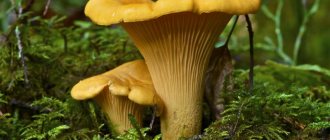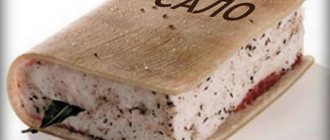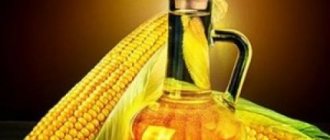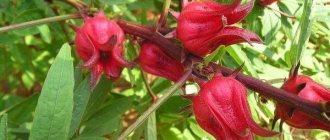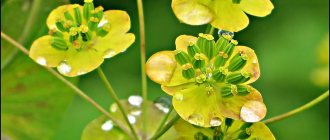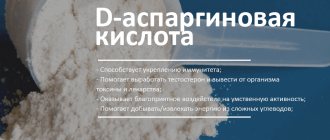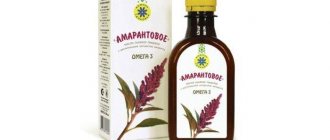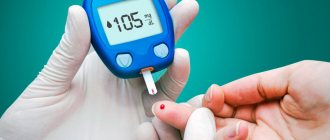Tea drinking is not only a pleasant pastime with family and friends, but also promotes beneficial relaxation and good mood. Moreover, according to numerous studies, tea as a drink can have a powerful effect on the human body - calm or, conversely, excite, give strength or relax. The expected effect is also affected by the dosage and strength of the drink.
This article will talk about hibiscus tea, the properties and contraindications of the drink, as well as methods for brewing it. But first, let's find out what hibiscus is and how it is useful.
Handsome hibiscus
You may be familiar with this second name for hibiscus flower tea. The birthplace of this plant, as it turned out, is the East. Ancient Arab sages repeatedly mentioned its miraculous properties in their treatises.
Before this, many believe that hibiscus grew in India, after which it was exported to Egypt and northern Africa. Nowadays, hibiscus tea is distributed throughout Asia, Europe and America.
The plant itself is a branched shrub (less often a tree) with graceful flowers of various shades.
Contraindications
Hibiscus is sold in pharmacies and regular stores, but tea from hibiscus flowers, in addition to beneficial and medicinal properties, has contraindications. Even if you have no contraindications, it is not recommended to drink more than 3 servings of the drink per day.
Besides:
- the sour drink is not recommended for patients with gastritis and high acidity of gastric juice,
- Do not drink tea during exacerbations of urolithiasis,
- intolerance to plant components.
Hibiscus in tea can bring not only benefits, but also harm, so people prone to allergies should take it with extreme caution. Especially for those who have a reaction to berries, fruits and vegetables with red pigment. For the same reason, tea should not be given to children under 1 year of age, and for older children, start drinking it only after consulting a doctor.
In any case, eating hibiscus cannot replace taking medications. You should tell your doctor about its combination with other medications and antibiotics.
Exotic is good, but the familiar and familiar to us, seeded buckwheat, also has an impressive list of beneficial properties.
What is remarkable about the plant?
When talking about the benefits and harms of hibiscus tea, you should definitely mention its composition. Interestingly, not only the inflorescences of the plant, but also the leaves, fruits, and even seeds have healing properties. Hibiscus is rich in useful substances such as:
- Vitamins A, PP, group B, ascorbic acid.
- Microelements such as phosphorus, potassium, magnesium, calcium, sodium and others.
- Flavonoids.
- Pectins.
- Beta carotene.
- Antioxidants, etc.
Many people, interested in the properties of hibiscus tea, think about its nutritional value. So, the drink is considered very light and dietary. One hundred grams of the product contains: fat - zero grams, carbohydrates - 0.6 grams, proteins - 0.3 g, calories - 5 kcal.
What are the beneficial properties and contraindications of hibiscus tea?
Useful properties of inflorescences
The strength and healing properties of tea are given by the rich composition of biologically active substances:
- anthocyanins give tea a ruby color and strengthen the walls of blood vessels;
- quercetin provides antioxidant properties, reduces wear and tear of skin cells, cornea, and myocardium;
- flavonoids help slow down aging, elasticity of blood vessels, and reduce the risk of diabetes;
- linoleic and other organic acids provide support to the body and improve mental functions;
- a large amount of pectin helps remove waste from the body;
- contains 13 amino acids;
A large number of active substances does not mean that the infusion needs to be consumed in liters daily; the benefits and harms of hibiscus tea should be calculated depending on the state of your own body and the sensations after consumption.
Indications for use
Hibiscus is necessary for people during periods of seasonal infections. It will provide support in cases of decreased immunity and improves well-being during fever. Fatigue and overwork are easier to bear, and the body recovers faster. Hibiscus tea lowers blood pressure in hypertensive patients and restores visual function during prolonged eye strain, for example, from a monitor. If you accustom yourself to such a drink and introduce it into your diet on an ongoing basis, the reward will be an improvement in complexion, dry skin will no longer bother you, and acne will disappear.
Hibiscus plant
A separate important function of tea is its diuretic effect and the ability to relieve spasms. Due to the fact that it does not contain oxalic acid, it can be consumed even by people with kidney failure. There are observations that the hibiscus drink helps with hangovers if you drink it instead of brine. Effectively relieves headaches and removes alcohol breakdown products from the body. Hibiscus regulates metabolism and affects all digestive processes. If you drink three glasses of this tea during the day, the excess weight will begin to disappear little by little.
In addition to the opportunity to diversify the daily menu with an aromatic drink, hibiscus is used in home cosmetology. The AHA acids it contains, paired with oligopeptides, well restore skin texture, trigger regeneration processes in the epidermis and collagen synthesis. Pores are reduced and flavonoids make the skin look fresher.
For what diseases is it used?
As can be seen from the composition listed above, hibiscus flowers have many useful microelements that can be used for such ailments as:
- Viral diseases of a cold nature.
- Decreased immunity.
- Some diseases of the gastrointestinal tract.
- Cardiovascular pathologies.
- Insomnia.
- Mild neuroses.
- Salt deposits.
- Hypertension.
- Constipation.
The leaves of the plant also have a beneficial effect on the human body. For example, they help eliminate toxins and clear worms.
Moreover, decoctions of hibiscus petals can be used not only internally, but also externally. They can be used in the form of compresses as an addition to the main therapy for skin diseases manifested in wounds, bruises, tumors, and inflammations.
Below we will take a closer look at how you can prepare hibiscus tea so that it has healing properties. But first, let's talk about the cautions regarding the use of this plant.
Hibiscus - benefits and beneficial properties of hibiscus
Chinese rose is one of the most beloved and popular indoor flowers; few people know that the petals of this plant have powerful beneficial properties. In the East, hibiscus, and this plant is called that way, is used in the treatment of a wide variety of diseases and ailments. The benefits of hibiscus are fully reflected when rose petals are brewed in boiling water; many people know this drink as hibiscus. The beneficial properties of hibiscus are usually indicated on tea packaging, but the spectrum of action of hibiscus is much wider.
What are the benefits of hibiscus?
The beneficial properties of hibiscus were highly valued back in Ancient Egypt. Thus, the Sudanese rose flower was used as a strong diuretic, choleretic, bactericidal and anticonvulsant. Crushed hibiscus flowers were used as a hemostatic agent and also as a medicine against swelling and boils.
The composition of hibiscus is unique; it contains a large amount of anthocyanins, thanks to which the drink from the petals acquires a noble ruby hue. These same substances have the ability to strengthen the walls of blood vessels, cleanse them of low-density cholesterol deposits, and rid the body of excess fat deposits. Also, hibiscus tea has a laxative effect, which allows you to regulate bowel movements and get rid of the accumulation of feces in the body.
By regularly drinking tea from hibiscus petals, you can fully experience the benefits of flavonoids - cleanse the body of harmful compounds and heavy metals, toxins and metabolic breakdown products. At the same time, the function of the liver and gall bladder will be significantly improved.
The high content of ascorbic acid and polysaccharides has the most beneficial effect on the functioning of the immune system, activates the body's protective functions, and helps cope with viruses and infections.
The circulatory system and heart also react favorably to hibiscus, blood vessels return to normal, and the heart normalizes contractile activity. Due to this, blood pressure increases in hypotensive patients and decreases in hypertensive patients.
Hibiscus also has pronounced anthelmintic properties; it is drunk to cleanse the body of helminthic infestations. Freshly brewed tea also has antimicrobial properties and acts as an antispasmodic.
The organic acids that make up hibiscus give the infusion a sour taste; it perfectly quenches thirst, tones, and improves well-being. It is noteworthy that Chinese rose does not contain oxalic acid, so hibiscus tea can be drunk by people suffering from gout and urolithiasis.
Hibiscus is most often consumed in the form of tea, rose petals are brewed in the usual way, infused and drunk, hot or cold, with the addition of honey or sugar. It is noteworthy that this drink is delicious in any form; hot it invigorates, and cold one saves you from thirst and overheating in hot weather. Hibiscus helps minimize hangover symptoms and fights alcohol intoxication.
Unlike ordinary tea leaves, after infusion of hibiscus, it is better not to throw away the petals, but to eat them; they contain a large amount of protein containing valuable amino acids, some of which are essential for the human body.
The Chinese rose belongs to the category of useful indoor plants. In the room where hibiscus grows, a favorable microclimate is created, the phytoncides emitted by the plant heal and purify the air, other plants nearby begin to grow better and do not get sick.
Contraindications:
People with gastritis with high acidity, stomach ulcers and duodenal ulcers should avoid eating hibiscus. It is also not recommended to drink hibiscus tea for children under one year of age.
When should you not drink?
Contraindications for hibiscus tea are, first of all, allergic reactions that can be caused by individual intolerance to certain components of the plant.
Also, it cannot be used for diseases of the gastrointestinal tract such as gastritis, ulcers, pancreatitis, high acidity and others.
And of course, there are temporary contraindications for hibiscus related to the period of gestation and lactation. It should be remembered that the plant helps to increase menstruation. Therefore, girls carrying a child should be careful and careful not to provoke a miscarriage. On the other hand, using hibiscus tea during pregnancy will help minimize toxicosis and nausea. Another contraindication for the drink is children under three to five years of age.
But how should the drug be collected correctly to preserve its beneficial properties?
Useful properties of hibiscus
Rich red color, pleasant sourness and delicate aroma - these are the properties of hibiscus in tea made from its petals that we value most of all. In stores, tea is found under the names “Hibiscus” or “Sudanese rose”.
The components in hibiscus petals are known for their beneficial properties:
- Vitamin P in anthocyanin compounds is what gives tea this wonderful red hue. This vitamin affects blood vessels: strengthens them, gives tone, regulates the permeability of the walls. As a result, vitamin P normalizes blood pressure and helps lower cholesterol levels.
- Flavonoids enhance the effects of anthocyanins, improve metabolism, accelerate the burning of fat in the body and, as a result, promote weight loss. In addition, flavonoids help the body cope with bacteria and get rid of worms.
- Citric acid gives hibiscus tea a pleasant sourness, refreshing taste and tonic properties.
- Pectin and polysaccharides help cleanse the intestines and normalize digestion.
It is important to note that tonic hibiscus tea does not contain oxalic acid, so it will not cause harm, but benefit the health of people with liver and kidney diseases. Thanks to these components, Sudanese rose flowers have beneficial properties:
Thanks to these components, Sudanese rose flowers have beneficial properties:
- antispasmodic;
- tonic;
- strong diuretic and choleretic;
- antipyretic;
- anthelmintic (anthelminthic).
Not only tea, but also steamed petals have these beneficial properties. It is recommended to eat them to remove toxins and waste from the body.
But its medicinal properties are not limited to the flowers of the Sudanese rose. The remaining parts of the plant contain useful components that have the following effects:
- choleretic;
- strong diuretic;
- vascular strengthening and tonic;
- bactericidal;
- anticonvulsant;
- hemostatic.
The familiar walnuts are also endowed with an impressive list of beneficial properties.
Recommendations for collecting and storing medicinal herbs
To maintain the highest concentration of nutrients in the plant, it should be collected on the sixth, maximum seventh day after flowering begins. This applies not only to hibiscus inflorescences, but also to its root system.
The collected raw materials are thoroughly dried, but several rules must be followed. For example, hibiscus should be dried in a dry, dark place; you must be especially careful not to expose it to direct sunlight. Also, during drying, parts of the plant must be turned over several times in order to avoid unnecessary rotting of the components.
When the hibiscus petals have become brittle and brittle, this means that it can be collected and hidden in a dry, dark place. It is advisable to store herbs in containers made of natural materials (glass jars, cardboard boxes, linen bags, etc.).
The shelf life of such raw materials should not exceed three years. After this, the hibiscus will lose all its beneficial substances.
Drink to boost immunity
Considering all the above beneficial properties of hibiscus tea, let's find out how to prepare it in order to increase your body's defenses.
To do this, take 4 tsp. hibiscus, as well as lemon balm, oregano and mint (a small pinch each). Pour the mixture of herbs into 0.5 liters of boiling water and leave for an hour. It is recommended to drink the prepared infusion throughout the day, which will not only strengthen the immune system, but also increase vitality.
Dietary properties of hibiscus
Hibiscus is used to prepare dietary salads
Hibiscus is used not only in the form of tea. The leaves and shoots of this plant are added to salads; a variety of sauces, marinades, desserts, syrups, wine drinks, etc. are prepared from the flowers.
The Sudanese rose is used almost entirely for food. Light salads are made from its fresh leaves. Sudanese rose seeds resemble sesame in taste and are used to make soups and desserts by roasting and grinding.
In our country, hibiscus has found its wide application primarily in the form of a tea drink. Tea cups are used to make tea, not petals, as is often mistakenly written on packages. When the flower fades, its calyx begins to grow, increasing in size several times, becoming fleshy and juicy. For tea, they are collected together with ripe fruits. When fresh, they are a good ingredient in a variety of dishes, making them more delicious. For example, jelly from Sudanese rose is in no way inferior in taste and nutritional quality to a similar product made from red currant. Sauces, compotes, even soups are prepared from fresh cups of Sudanese rose, they are pickled and salted, and dry ones are used to make aromatic tea.
Making a delicious tonic and soothing drink from red flowers is very simple: you need 2 tsp. Pour a glass of boiling water over dried flowers and leave for about 5 minutes. Interestingly, the brewing of this tea is also edible. Moreover, the swollen flower calyxes contain a lot of protein and pectin.
During the hot season, it is good to make iced hibiscus tea. To do this, plant flowers are placed in cold water and brought to a boil, then sugar is added. Drink it cold. You can add ice before use.
The herbaceous hibiscus sabdarifa is used to make the “Drink of the Pharaohs,” a luxurious bright red tea drink made from the dried calyxes of the flowers. This is the national Egyptian drink. In Egypt, they drink it as a refreshing, tonic drink that gives the body strength and energy. In addition, it improves metabolism, protects against intestinal infections and increases appetite. It is brewed like regular tea, but infused a little longer, about 25 minutes. To saturate the aroma and taste, you can add a little mint, lemon balm, catnip or oregano.
Regular consumption of the “Drink of the Pharaohs” promotes the overall health of the body and reduces the risk of cancer.
Hibiscus is a popular houseplant native to China, the flowers and leaves of which have been used by local healers in folk medicine since ancient times. Nowadays, based on these flowers, a delicious and refreshing hibiscus drink is prepared. The beneficial properties of hibiscus tea allow it to be used not only to quench thirst, but also for the prevention and treatment of many diseases.
As a preventive measure
As you know, a disease is easier to prevent than to treat. Therefore, it is worth using hibiscus tea as a preventive measure against colds and infectious diseases, cancer and the development of atherosclerosis, memory impairment and decreased immunity. To do this, you can drink one or two cups of tea a day, sweetening it with honey or a spoonful of sugar.
Good for the heart, protection against cancer, armor for the immune system
What other benefits does hibiscus tea have? The Sudanese rose drink contains a whole range of vitamins, amino acids, macro- and microelements, fruit acids, and “good” carbohydrates. All these substances have a positive effect on the human body.
- Rejuvenates, reduces the risk of cancer. The antioxidants contained in the drink promote cell renewal and protect the body from radical particles. As a result, a “barrier” appears to the formation of tumors and the aging of organs and tissues. In addition, the substance pectin adsorbs toxins and heavy metal salts, painlessly removing them from the body. There is evidence that hibiscus even helps get rid of parasites.
- Strengthens blood vessels. The red color of hibiscus is due to the presence of pigment substances called anthocyanins. Once in the human body, they regulate the permeability of the walls of blood vessels.
- Prevents colds, ARVI. Immunity from viruses and additional strength to the body are given by citric and ascorbic acids. In cases where a person has already caught a cold, hibiscus is used as an antipyretic.
- Reduces cholesterol. Linoleic acid contained in hibiscus prevents the formation of plaques in blood vessels and removes excess fat.
Hibiscus relieves stress and helps overcome fatigue, improves brain function, and reduces the risk of stroke. The drink has a good effect on the functioning of the genitourinary organs. Useful for men: helps strengthen potency, has aphrodisiac properties. Red tea is also relevant for women, since it contains “beauty vitamins”: ascorbic acid, retinol, thiamine, riboflavin, niacin. Hibiscus infusion is used in home cosmetology. Including for skin care around the eyes.
Other uses of hibiscus
Of course, traditional medicine is not the only area where hibiscus extracts are used. Very often, the plant serves as the basis for a variety of cosmetics, such as shampoos, gels, creams, soaps, and so on. Thanks to its properties, hibiscus improves the skin and rejuvenates it, eliminating wrinkles and acne. It also moisturizes hair, making it shinier and healthier.
In cooking, hibiscus is used as a spice. This seasoning can be added to meat or fish dishes, various salads and sauces. And, of course, you can’t do without hibiscus when preparing compotes, jams, preserves, fruit drinks, cakes, and so on. Dried petals added to a coffee drink are also very good.
Moreover, hibiscus extract is also used in traditional medicine in the manufacture of certain types of tablets or external remedies.
Let's talk about tea
Hibiscus has become widespread in Russia in the form of tea. It has a unique aroma, special taste and pleasant color. The piquant sourness of this drink is best softened with a small amount of sugar, and it is pleasant to drink both in the winter cold and in the summer heat.
Advice! If you find the taste of hibiscus tea too sour, then it is recommended to dilute it with plenty of water. At low concentrations, the drink resembles raspberry compote.
Brewed hibiscus perfectly tones and calms the nervous system. Making this tea is quite simple - just pour 2 teaspoons of dried flowers with a glass of boiling water and leave for 5 minutes.
Advice! It is not recommended to throw away the remaining tea leaves, since the inflorescences of this plant are rich in protein and pectin, which absorbs toxins and wastes, and then removes them from the body naturally. Therefore, brewed inflorescences are very useful to eat. They do not have the most pleasant taste, but the benefits for the body are significant.
To prepare a refreshing drink that will quickly quench your thirst and give you energy on a hot day, you need to pour dry flowers with cold water and bring to a boil. After which the tea should cool completely. You can add ice cubes if desired.
What is the benefit of the drink?
Hibiscus tea has a number of beneficial properties:
- due to the high content of antioxidants, it promotes rejuvenation of the body and protects it from the harmful effects of free radicals, which, in turn, prevents the risk of malignant and benign tumors;
- Hibiscus flowers color the drink a rich red color, as they contain anthocyanins, so it is very useful for patients suffering from vascular diseases;
- the complete absence of oxalic acid allows people with kidney disease to drink this tea;
- citric acid improves general condition and protects the body from infections, in addition, it perfectly refreshes and regulates body temperature;
- linoleic acid prevents the formation of cholesterol plaques and eliminates excess fat deposits;
- vitamin C and fatty acids help overcome stress, relieve chronic fatigue and stimulate brain function;
- the drink is effective in treating sexual dysfunction in men and has a beneficial effect on the entire genitourinary system;
- Hibiscus tea cleanses the liver well and normalizes the functioning of the digestive system;
- Hibiscus tea taken on an empty stomach exhibits antiparasitic properties.
Advice! To rid your body of alcohol breakdown products, you shouldn’t reach for brine – just drink a cup of this aromatic drink.
